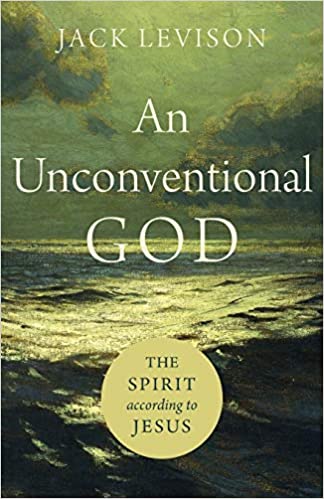BEN: In your first chapter on the birth narratives, you allude to several of your previous books about the Holy Spirit, including the Holy Spirit in the OT. It appears to me that we may differ on whether the OT actually refers to the third person of the Trinity. I would take the references to the spirit in the OT as references to Yahweh’s living presence, active in the world and in God’s people. I don’t think the writers were consciously or unconsciously writing about the third person of the Trinity, nor do I really think the writers of the NT think otherwise about those texts. Share with us why you would disagree with these sorts of conclusions, and with OT scholars like John Goldingay on this matter.
JACK: I wouldn’t disagree. Not a jot or a tittle! And I hope you’ll forgive me if I make reference to a book I published last year with Baylor University Press: The Holy Spirit before Christianity. In that book, I agree entirely—hook, line, and sinker—with you and John Goldingay. I actually quote John copiously in that book. In The Holy Spirit before Christianity, I make the case that pneumatology, which begins with Christianity, is absolutely wrong about starting-points. The starting-point for pneumatology lies not in Christianity, with its trinitarian presuppositions, but in ancient Israel, especially Isaiah 63:7-14 and Haggai 2:4-5—two texts that first understand the Spirit as an agent of God but certainly not a member of the Trinity.
By the way, my first book with Baker Academic, A Boundless God: The Spirit according to the Old Testament, contains a great—and much shorter—exposé of this point of view in the chapter on the Spirit Standing. The Baker book is less expensive than the Baylor book, and it covers the whole OT, so I think it is a great investment.
This means our understanding of the Holy Spirit is not our own, as Christians, but it is rooted in Israel’s conception of the Spirit. This is exactly, precisely, what you just said so perfectly: “I would take the references to the spirit in the OT as references to Yahweh’s living presence, active in the world and in God’s people. I don’t think the writers were consciously or unconsciously writing about the third person of the Trinity, nor do I really think the writers of the NT think otherwise about those texts.” One third of The Holy Spirit before Christianity, the entire conclusion, is an effort to rebuild pneumatology from the ground up, understanding it as rooted in crisis and community rather than theological speculation on the nature of the Trinity.
Scot McKnight calls what I do ruachology rather than pneumatology—understanding the Holy Spirit, first and foremost, as an Old Testament experience. You can read what Scot says at https://www.christianitytoday.com/scot-mcknight/2020/april/boundless-spirit.html. This is vintage McKnight—right on target for a wide array of readers.
I’m sorry, by the way, if I wasn’t clear on this point. I would encourage your readers to pick up The Holy Spirit before Christianity—it’s not long at all, and I tried to make it an inviting read. Even if they don’t read the whole of it, I think a glance at the introduction and conclusion will go a long way to clarify my answer to this question.
The bottom line? I agree with you, Ben.













